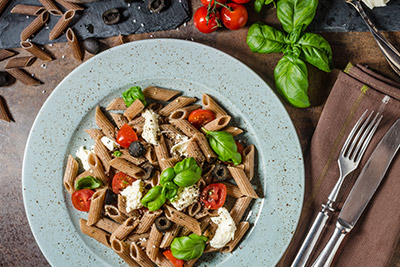 Have you been trying to eat healthy for years, only to find out foods you thought were good for you were blacklisted? Well, never mind about these, because they’re back!
Have you been trying to eat healthy for years, only to find out foods you thought were good for you were blacklisted? Well, never mind about these, because they’re back!
Let’s face it, most of us would rather not outlaw anything we love if we don’t have to.
It’s hard to find that balance when the “don’t eat” list keeps changing, but here’s some good news from the nutritional front. These foods aren’t so bad after all!
Fat: In recent years, we’ve learned a lot about the value of keeping healthy fats in our daily diet. Our bodies need fat for important functions like organ protection and brain development. Fat is also important for a good mood. It helps you feel fully satisfied with your meals. Many of today’s experts believe that naturally “fatty” foods like salmon, avocado, nuts, olives and coconut oil, are essential to health and weight management.
Fat in your diet is no longer automatically linked to unwanted fat in your body. That kind of thinking led people to rush toward low-fat food products which often replaced the satisfaction from fats with sugars instead. But the sugars, especially the refined carbs in packaged foods and sweet treats, tend to do more damage to our bodies than natural fats did in the first place.
Bread: If you have problem with grains, or just wheat, or gluten (the protein associated with wheat and most breads, you might experience some serious effects, like Celiac disease when you eat things made with flour. But for most of us, sprouted breads and whole grain pastas work just fine—and we love them!
The fiber in whole grains is a health benefit, but if you have an intolerance, there still is no need to keep baked goods and noodles off limits. Today’s options for grain-free recipes and gluten-free menu items make eating bread possible…and delicious. Products you might want to try include alternate flours like almond, rice or coconut and buckwheat flour. For side dishes there is polenta, quinoa and more.
Butter: See fat, up above, to understand why it’s not necessary to remove all butter from your life. Especially when it’s made with dairy that comes from happy, drug-free cows. There are omega 3s in there, and it’s good for your brain.
Have you heard of having “bulletproof” coffee to start your day? It calls for pasture-raised, full-fat butter to help make your morning cup extra creamy and give you a metabolic boost. Jury is out if it’s a real health benefit… but read on about the coffee!
Coffee: Years ago, coffee was considered a vice—there was the addictive nature of caffeine, the stomach acids, and the potential diuretic and heart-racing affects. But now, some of the latest research on drinking coffee shows it’s more likely to help than harm your health. In fact, three to four cups per day has been linked to lowering the risk of heart disease, liver cancer, type 2 diabetes, and more.
According to one study at the University of Scranton, Americans get more antioxidants from coffee than any other source! Best if you don’t add sugar, black coffee is a calorie-free beverage.
Still, we should note, coffee drinks and bread baskets are not always great choices when you’re aiming for clean nourishment on your plate. In short, it’s never a good idea to eat too much of anything, even if it isn’t quite as “bad” as we all thought it was!


